You wouldn’t try to build a house without blueprints, or drive across the country without a map. So even if you think you’re doing everything right with your money—you follow a budget, have a fully-funded emergency savings account, and are maxing your IRA or 401(k) contributions—if you don’t have a financial plan, you’re still falling short.
What is a financial plan and how can it help?
A financial plan does three important things: it helps you set financial goals, it tells you where you are in relation to your goals, and it tells you what you need to do to pursue those goals.
Some people get tripped up by this, but it’s important to know that a financial plan is much bigger and more comprehensive than a budget. A good plan gives you a big-picture look at your money, and helps you see how each decision you make can impact you in the long term. It looks not just at your savings, but also at future income and how you intend to spend that money. And it’s not just a plan from a snapshot in time; a good financial plan is flexible, giving you the ability to make adjustments along the way when needed.
Thinking about starting a business, or retiring early? Dreaming of buying that RV, boat, or vacation cabin? Did your child get accepted to a more expensive college than you’d planned for? When you have a solid financial plan in place, you’ll know not only if, but when these things are possible.
Giving you answers
A financial plan will help you …
- Set goals and measure the likelihood of being able to reach those goals, giving you both time and motivation to adjust if needed
- Set benchmarks along the way that keep you focused on reaching your goals
- Decide if changes need to be made in terms of your savings rates, risk tolerance, investment asset allocation, and other criteria
- Improve your tax planning, which is even more important when you reach retirement
- Make important decisions about estate planning, which could include a will as well as powers of attorney for health and financial matters
- Not panic when markets fluctuate, since a solid plan will help you anticipate these types of market swings
What’s keeping you from having a financial plan?
Some of the most common responses to this question are:
- I don’t have much money, so I don’t need a plan
- It’s too early/too late for a plan to make a difference
- It’s too much work and I don’t know how to put together a plan
- It’s too expensive to develop a financial plan
- I can do financial planning myself
It’s time to bust some of these myths.
Financial plans are not just for wealthy people, or people nearing retirement. Everyone needs a plan, regardless of age, net worth, or other factors. In fact, when you’re young, a good plan can be especially valuable because it can help you plot out all the things you want to do in life—change jobs, buy a house, send your child to college, take that dream vacation, and more.
There are a few situations in life where 'do-it-yourself' decisions make sense and save you money. But making important long-term financial decisions might not be one of them. While it may be tempting to try to figure things out on your own, your decision to hire a financial professional could help you work toward your long-term goals more quickly, effectively, and efficiently. Online tools might look like an easy do-it-yourself solution, but a solid financial plan requires constant updating and professional insight. While it might look like it will take too much time or be too much work, a good financial professional can make the process both easy and enjoyable.
And finally, your first meeting with a Global Retirement and Investment Services Professional has no cost. If you’re not convinced of the value, you don’t have to make a commitment to continue. But we think you’ll find that their involvement in helping you develop your financial plan will more than pay for itself in the long run.
What’s included in a financial plan?
Curious about what to expect from a financial plan? It will likely be more comprehensive than you think, and may include:
- Goals, which can be everything from buying your first house or saving for your child’s college to buying a business or planning your retirement
- Net worth, including your assets (savings, real estate, and more) and your debt (loans, mortgages, etc.)
- Budget, which helps you anticipate both income and expenses; this can include a strategy to help you pay down your debt when it makes sense
- Risk, which covers your risk tolerance for investments and your insurance needs (including life and umbrella coverage, long-term care insurance, and more)
- Retirement plan, which covers both anticipated expenses during your golden years as well as your expected income from Social Security, pensions, and investments
- Tax planning to help you minimize tax impacts now, through pre-tax retirement savings, as well as later during retirement
- Estate planning is also important, regardless of whether you want to spend every penny you have during your lifetime, or if you want to leave your children or grandchildren something when you’re gone; this can also cover things like trusts, beneficiary designations, and other considerations
Ready to get started?
Once you’re convinced of the benefits of having a financial plan, here’s how to move forward:
- First, schedule a complimentary, no-obligation consultation with a Global Retirement and Investment Services Professional, either online or by calling us at 907-646-6424.
- Before your appointment, you’ll need to do a little homework. First, talk with your spouse, partner, and family to determine your goals. For many people, this is one of the hardest parts of financial planning. It’s helpful to be specific but remember—a financial plan is not a ‘one-and-done’ thing, but a living, breathing document that will change over time. So, it’s okay to change your goals over time as well.
- Next, gather your financial information. Your paystub will provide details on your income, retirement contributions, and other information. Take stock of your debts, including your mortgage and any credit card balances, vehicle, or student loans you have. Then tally up your assets. Include checking, savings, investments, and other accounts, but don’t forget about 401(k)s left behind with former employers, Health Savings Accounts, life insurance policies, investment accounts, and more. Your Global Retirement and Investment Services Professional may even give you a checklist to help you identify helpful items.
- While your financial professional can work with almost anything you provide, more detail will result in a better plan. Know that the process of developing your plan will require some back and forth with your advisor to develop the strategies; this is a plan completely customized for you.
- Once you’ve got a financial plan in place, be sure to revisit it every year or so with your financial professional. Life happens and goals may shift, so your plan needs to be modified along the way to reflect those changes.
Want to make financial decisions with more confidence?
A solid financial plan gives you both a comprehensive, big picture view of your money as well as a list of detailed, strategic steps you can take to work towards your goals. A plan will also help take some of the mystery out of your financial future, leaving you able to make important financial decisions with more confidence.
Knowledge is power, and it’s never too early or too late to start planning for your financial future. A financial plan gives you a solid place to start. We’re here to help.






